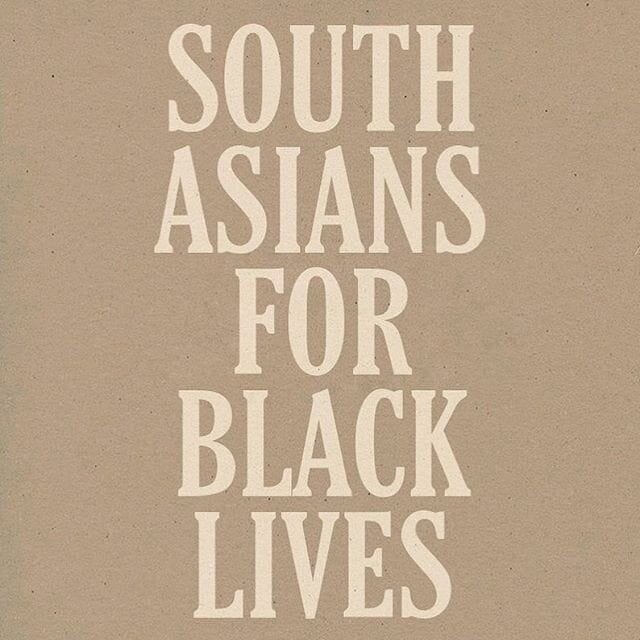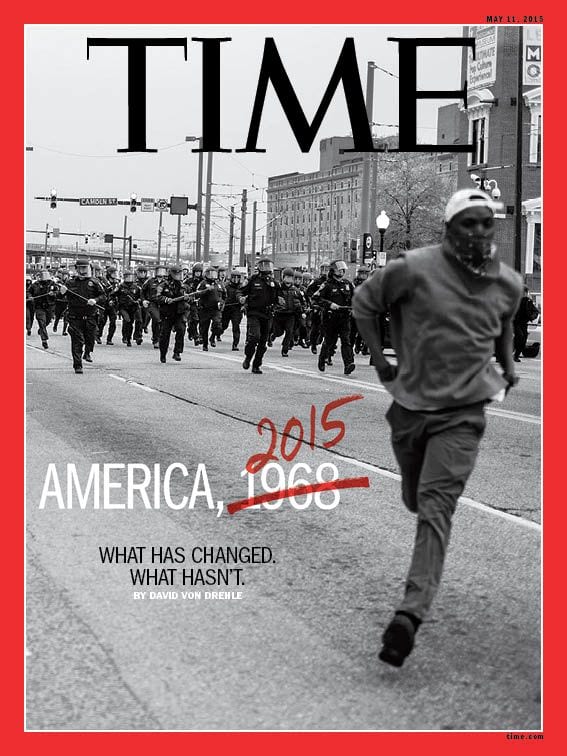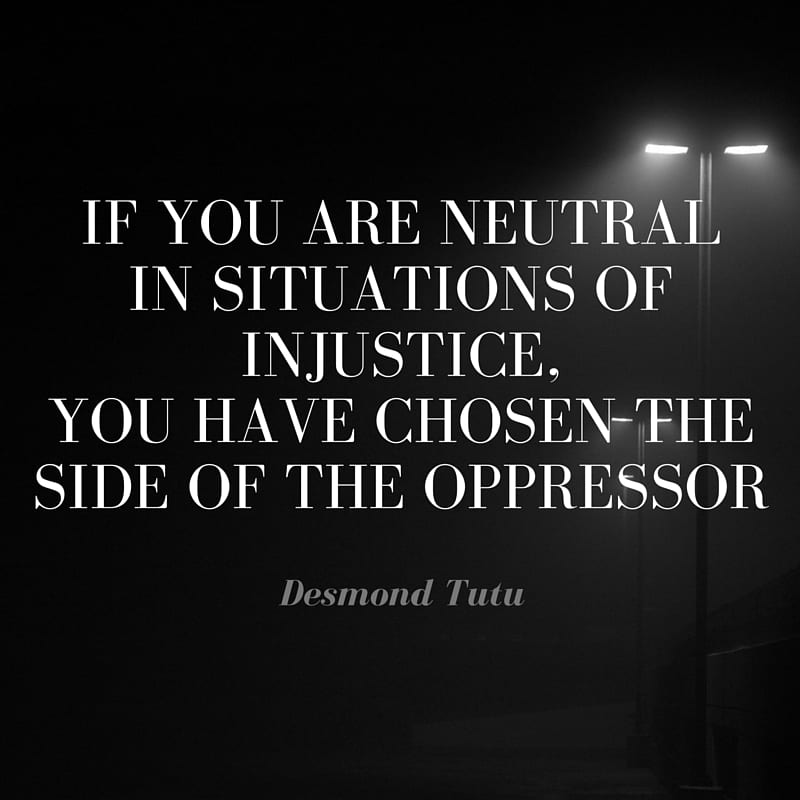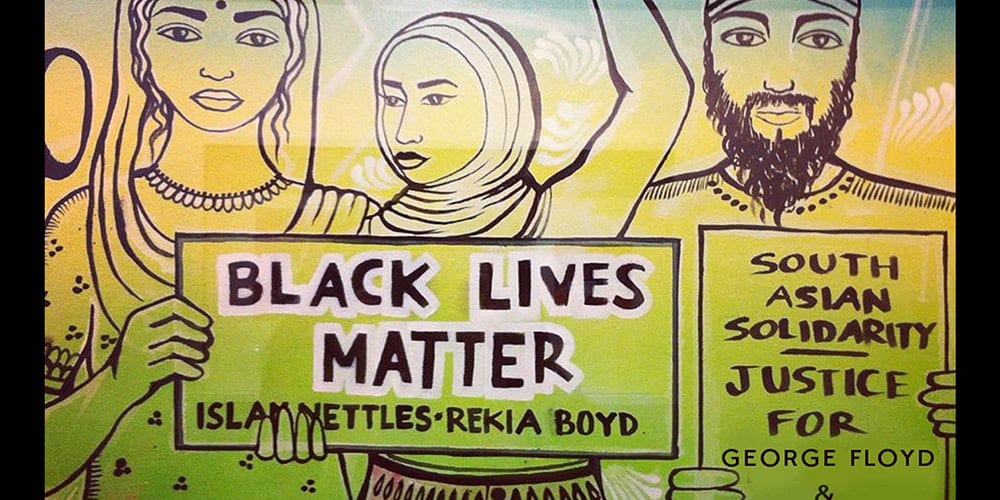We continue our holiday series: Our #ICYMI Stories Of 2020, by examining key ways in which we can become better allies to our Black brothers and sisters.
We are witnessing a pivotal point in civil rights history. The Black Lives Matter movement continues to grow in strength in numbers with massive crowds across the United States as well as in countries around the world — all instigated by the horrific murder of George Floyd by the police. The most important (and often-asked) question is how can we be the right South Asian ally for our Black friends? We take a closer look at ways we can learn and lend that support.

All lives cannot matter until Black lives matter.
All. Lives. Cannot. Matter. Until. Black. Lives. Matter.
Now that we’ve cleared that up, let’s move on!
Let’s Talk About Black History and #BlackLivesMatter:
The words #BlackLivesMatter have been posted and chanted all over the world following a slew of racially charged and enraging events throughout the United States, most of which ended in tragic outcomes at the hands of police.
Here’s the thing, Black people in America are disproportionally targeted by police.
Let us review the facts. According to Mapping Police Violence, 1,098 individuals died at the hands of a law enforcement officer in 2019. Of those 1,098 people, “Black people [made up] 24% of those killed despite [making up] only 13% of the population.”
However, the violence perpetrated against Black bodies isn’t new.

Here’s your history lesson for today: Slavery began in America in 1619 and following the Civil War (1861-1865) the 13th Amendment (1865) was ratified, which was meant to eradicate slavery in America. Although slavery had ended, colonial ideologies were alive and well. Whites in America still held firm to the notion of white supremacy that reinforced the idea that they were better than others, particularly Blacks. In their eyes, this superiority gave whites the authority to dominate black, while also protecting their power. And so, they did:
Fact #1: In 1921, ‘Black Wall Street’ in Tulsa, Oklahoma was a flourishing community, which, according to ACLU, “was home to Black and Native Americans who had become wealthy from oil discoveries.” Whites were not pleased about the threat Blacks posed with this success. And so, when Dick Rowland, a black young man, allegedly tripped and touched a white female elevator operator, that was all the ammunition they needed to launch an attack that would bring down ‘Black Wall Street.’ The carnage, notes ACLU, included the devastation of “more than 35 blocks of the city, more than 1,200 homes and left some 300 people dead, mostly Black. Ten thousand people were left homeless.”
Fact #2: Black codes were established soon after the 13th Amendment, according to History, and worked to dictate what kind of employment ‘free’ Blacks were entitled to, including controlling their pay. Black codes also existed to stop Blacks from voting and they were limited to where their could take up residence.
Fact #3: The Ku Klux Klan (KKK), established in Pulaski, Tennessee began in 1865. This group, notes History, “grew into a secret society terrorizing black communities and seeping through white Southern culture, with members at the highest levels of government and in the lowest echelons of criminal back alleys.”
Violence against Blacks continued during the Jim Crow Era until 1964, following the Civil Rights Movement, and the passing of the Civil Rights Act which happened after 6 days of protests in 1968.
And, sadly, violence against Blacks has yet to stop in the United States, with the most recent victims of police brutality in the past three months alone — Ahmaud Arbery, Breonna Taylor, Christian Cooper, and George Floyd.

That said, although the cry is renewed and louder than ever, #BlackLivesMatter existence is remarkably young considering their impact.
The group was established in 2013 by co-founders Patrisse Khan-Cullors, Alicia Garza, and Opal Tometi in response to Trayvon Martin’s murderer being cleared of his charges after claiming his actions were out of self-defense. The efforts of the Black Lives Matter organization stretches across the world, including North America and Europe. The Black Lives Matter organization is on “mission to eradicate white supremacy and build local power to intervene in violence inflicted on Black communities by the state and vigilantes.”
Let’s Put Their Struggle In A Context That We Can Understand
Let’s dig a little deeper: we as South Asians know what it’s like to exist within a system that limits you on the basis of oppressive ideologies in order to keep a more ‘superior’ group in a position of power. The caste system is the perfect example. The Dalits also known as The Untouchables have some commonalities with Blacks in America, in that they are considered to be ‘less than’ from birth and are restricted to what they can achieve in life as a result of an oppressive system that fears them.
Imagine that you were born a Dalit and were considered to be inferior just because? Imagine if that meant you couldn’t go for a run or even be in your own home without worrying about your life?
This is the Black experience, every single day in America.
Does that feel unsettling yet? Do you feel compelled to get involved because on a basic human level you know right from wrong? Or do you still think the oppression of Blacks is their problem and not ours?
Where Does The South Asian Community Fit In #BlackLivesMatter?
Granted, living in America has not been easy for South Asians, especially following 9/11. Where we faced heavy discrimination based on our race, place of origin, and religion (or what was perceived to be their religion), and are often labeled as terrorists when linked to crimes. Despite these hardships, Queens Journal notes that “South Asians … view themselves as a model minority — a representation of all the ideals that marginalized people should meet to find success in mainstream society.”
In my experience, South Asians have claimed that Blacks need to just work harder. Behind closed doors, I’ve heard it said that if ‘we’ (South Asians) can have coloured skin and achieve success, why can’t they (Blacks) do the same?
This line of thinking, according to Queens Journal, is dangerous as it does not recognize the dangerous and inaccurate principles that legitimize “…white supremacy.”
Today, the fight against racism is at a breaking point — people are rightfully outraged. We as South Asian community can no longer subscribe to inaccurate notions that racism against Blacks is not our problem. Furthermore, we as South Asians cannot benefit from the work they have done to allow us to call America home and then turn our backs on our brothers and sisters.

So What Can We Do?
#SouthAsianSolidarity is crucial.
Now more than ever, ally-ship is needed to ensure that we — the South Asian community — are empowering the Black community in the fight against systemic racism.
To do this, anti-racist notions must be dismantled. As well, education, listening, and speaking out against anti-racism, especially anti-blackness (no matter how hard it is) are steps that need to be taken.
This will feel uncomfortable, but enabling ignorance and silence is not an option — otherwise, we’re no better than the oppressor.

Here are some anti-racist resources that you can refer to:
- To start the conversation in your household or among your family/friends members, a letter is available in 20 different languages that you can customize to fit your needs: Click here to download a copy!
- Check out Sasha W.’s powerful blog post, “The Revolution Starts With My Thathi: Strategies for South Asians to Bring #BlackLivesMatter Home” for tips on how to talk about #BlackLivesMatter.
- There are educational resources on various streaming platforms that speak to black oppression, such as The Patriot Act (“We Cannot Stay Silent About George Floyd”), Explained: The Racial Wealth Gap, Time; The Kalief Browder Story, When They See Us, 13th, Ferguson: A Report from Occupied Territory, Stay Woke: The Black Lives Matter Movement, and Who Killed Malcolm X?
- Sign up for educational sessions. Check out this free event on June 12th by Equality Labs, “South Asians in Defense of Black Lives: Conversation with Zoé Samudzi.”
As well, other impactful actions that you can take to effect change are as follows:
- Donate to bailout funds, advocacy organizations, or to other causes you feel will make a difference (if you’re able to) – just be sure to do your research.
- Exercise your rights by contacting your local politician, voting, getting involved in social media activism, and signing petitions.
- Support Black-owned businesses in your area (if you’re able to)!
- Engage in self-reflection in order to understand your privilege and check your biases.
Fighting this battle side-by-side is crucial because together, we are stronger. And frankly, it is 2020 and it is high time that we upend a system that enables racism to ensure that Black people are seen as equals rather than as three-fifths of a person.
Main Image Photo Credit: www.sagrooves.com
Devika Goberdhan | Features Editor - Fashion
Author
Devika (@goberdhan.devika) is an MA graduate who specialized in Political Science at York University. Her passion and research throughout her graduate studies pushed her to learn about and unpack hot button issues. Thus, since starting at ANOKHI in 2016, she has written extensively about many challe...














































































































